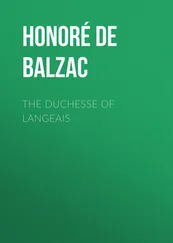Dino Dorothée - Memoirs of the Duchesse De Dino (Afterwards Duchesse de Talleyrand et de Sagan), 1841-1850
Здесь есть возможность читать онлайн «Dino Dorothée - Memoirs of the Duchesse De Dino (Afterwards Duchesse de Talleyrand et de Sagan), 1841-1850» — ознакомительный отрывок электронной книги совершенно бесплатно, а после прочтения отрывка купить полную версию. В некоторых случаях можно слушать аудио, скачать через торрент в формате fb2 и присутствует краткое содержание. Жанр: foreign_antique, foreign_prose, на английском языке. Описание произведения, (предисловие) а так же отзывы посетителей доступны на портале библиотеки ЛибКат.
- Название:Memoirs of the Duchesse De Dino (Afterwards Duchesse de Talleyrand et de Sagan), 1841-1850
- Автор:
- Жанр:
- Год:неизвестен
- ISBN:нет данных
- Рейтинг книги:4 / 5. Голосов: 1
-
Избранное:Добавить в избранное
- Отзывы:
-
Ваша оценка:
- 80
- 1
- 2
- 3
- 4
- 5
Memoirs of the Duchesse De Dino (Afterwards Duchesse de Talleyrand et de Sagan), 1841-1850: краткое содержание, описание и аннотация
Предлагаем к чтению аннотацию, описание, краткое содержание или предисловие (зависит от того, что написал сам автор книги «Memoirs of the Duchesse De Dino (Afterwards Duchesse de Talleyrand et de Sagan), 1841-1850»). Если вы не нашли необходимую информацию о книге — напишите в комментариях, мы постараемся отыскать её.
Memoirs of the Duchesse De Dino (Afterwards Duchesse de Talleyrand et de Sagan), 1841-1850 — читать онлайн ознакомительный отрывок
Ниже представлен текст книги, разбитый по страницам. Система сохранения места последней прочитанной страницы, позволяет с удобством читать онлайн бесплатно книгу «Memoirs of the Duchesse De Dino (Afterwards Duchesse de Talleyrand et de Sagan), 1841-1850», без необходимости каждый раз заново искать на чём Вы остановились. Поставьте закладку, и сможете в любой момент перейти на страницу, на которой закончили чтение.
Интервал:
Закладка:
Duchesse de Dorothée Dino
Memoirs of the Duchesse De Dino (Afterwards Duchesse de Talleyrand et de Sagan), 1841-1850
CHAPTER I
1841
Rochecotte, January 1, 1841. – Yesterday passed by uneventfully. In the morning I had mass said in my chapel for the late M. de Quélen, and shed heartfelt tears during the service. In the evening my son Alexander, my son-in-law and Pauline gave us some music. They sang vaudevilles and mimicked characters with a vivacity which delighted me, as I am always afraid that they may be bored here, though I admit that their frame of mind was in complete contrast to my own. On the stroke of midnight punch was served; some tears fell into my glass when I thought of those with whom I had so often spent this anniversary.
Rochecotte, January 2, 1841. – M. de Salvandy writes to me as follows concerning the reception of M. Molé at the Academy: "M. Molé spoke to a magnificent audience. He was seated between M. de Royer Collard and M. de Chateaubriand; on this occasion the latter broke his usual custom of avoiding public appearances. It was a special honour, either to M. Molé or to the memory of the late archbishop. The highest society from the Faubourg Saint Germain were there, in fact all the special friends of M. Molé and everybody who can be called anybody nowadays. M. Molé was continually applauded, and his cleverness, his taste and courageous speaking well deserved this reward. He gave a fair and respectful account of this pure and noble character and spoke of M. de Quélen without concessions or reticence or consideration for his own position. His ambition seems to have burnt its boats, with such enthusiasm did he speak of old time manners and society and so warmly did he emphasise the ideas and principles of good order. He only touched upon present times to utter a eulogy upon the King, and you know that present times are not agreeable to him. I was especially struck by the vigorous approval of the audience; it was a public rehabilitation of the persecuted Prelate and the canonisation of his memory by a layman before a public which was not entirely sympathetic or legitimist; for there was a lively manifestation of approval at certain passages in Dupin's reply, opposing the Restoration and the Englishman. Dupin's answer was quite characteristic, and I need say no more of it. M. Guizot and M. Thiers seem to have foreseen the success of M. Molé, for they did not appear and their absence was widely commented upon. In short, this session has greatly raised M. Molé in the opinion and esteem of right-minded people, but it has been in particular a great day for the memory of the Archbishop, for his family and his friends, and for those who felt his blessing as he was at the point of death. For this reason I hasten, Madame, to give you an account of it, as by this means I can realise its meaning more exactly and more deeply than if I had merely listened.
"M. Guizot has informed me of the nature of the despatches received from St. Petersburg, from Vienna and from London, which are in all respects excellent. There is a desire to bring France back to the concert of Europe, a readiness to make advances and to seek means and opportunity. Peace is restored and I should be inclined to say, more than peace."
I am delighted at M. Molé's success which I foretold to him when he read me his speech at Paris in September; and am delighted not only on his account, but also because he has done something to restore the reputation of this holy Archbishop, who was so misjudged during his lifetime.
Rochecotte, January 3, 1841. – Yesterday I received many letters from Paris which repeat practically what M. de Salvandy wrote concerning M. Molé's speech at the Academy. M. Dupin seems to have been quite unspeakable, and in short, entirely himself; M. Royer Collard grumbled throughout his speech and said, "This speech is sheer carnage." In fact the dead lay in heaps beneath Dupin's destroying charge. Noticeable were the thunders of applause when he inveighed against the revelation of state secrets, a direct thrust at M. Molé; but a most dramatic point, I am told, was Dupin's gesture in recalling the fact that a Molé, as an alderman of Troyes, had helped Charles VII. to drive out the English. His gesture and pose called forth repeated bursts of applause. Fortunately the diplomatic body were not present. It is a strange sight to see Dupin inveighing against the coalition of which he was a member.
M. Molé should be fully satisfied with his triumph, which has been complete, striking, brilliant and unusual. On this question M. Royer Collard writes as follows: – "No doubt more than one correspondent has told you of M. Molé's triumph, for such was the nature of his success, before a numerous and brilliant audience. I was glad to hear the speech which you and I have known for some time. If it is not an artistic production, it is the work of a clever man who has known better times than these and who has retained good traditions. The defects were not obvious; his courage appeared so natural that it was unnoticed; the beauties of it, which were by no means small, were understood and fully appreciated. M. de Quélen has shared the honour of the day, in truth it is he who has really triumphed, to such an extent did the audience share this solemn work of rehabilitation. I saw the most hard-hearted shedding tears. As M. Affre did not think of his predecessor, no one thought of him. M. de Quélen has carried the archbishopric of Paris to his tomb; there is not and will never be another archbishop; this striking and mournful glory is his."
I am extremely delighted at this posthumous triumph, as I have every reason to be, for I honoured, supported, cared for and perhaps even consoled the subject of it during his lifetime.
M. Molé's speech contains some admirable lines referring to the Cardinal of Périgord.
Before sessions of the Academy are held, speeches are by rule examined by a committee of members who act as censors and decide whether any passages should be struck out. M. Dupin did not conscientiously carry out this arrangement and his speech in public was not that which left the hands of the committee. It is expected that next Thursday when there is a special meeting of the Academy, explanations of the fact will be demanded. Mignet, who was present at the public session, is said to have been in a very bad temper and the newspapers of M. Thiers are preparing to fulminate against Dupin.
It is said that Mgr. Affre has proposed to change his cathedral precentors without calling a meeting of the Chapter; that the Chapter met to discuss the question; and that Mgr. Affre, when he heard of it, made a great uproar and forbade any meeting unless authorised by himself. New Year's Day then arrived. The Chapter have been accustomed to meet to send congratulations to the Archbishop: his prohibition was positive; they therefore did not meet, and have not congratulated the Archbishop. The result will be some new storm, for Mgr. Affre is a stormy character. The Sacré Cœur had much difficulty in securing permission to say a mass for Mgr. de Quélen at the end of the year; however, permission was granted, and there was a suffocating crowd.
Rochecotte, January 5, 1841. – For twenty hours snow has been falling steadily. We are absolutely buried under this thick shroud. One might be living in the north with all its horrible cold, and it is impossible to go out. All communications will be cut off, though the storm should last only a few hours. What a winter it is!
Rochecotte, January 7, 1841. – Yesterday I had a letter from Madame de Lieven, in which the main points are as follows: "Things in general seem to me to be going better, though security is not absolutely certain. Have I written to you since the news from St. Petersburg arrived? Do not believe the exaggerations of certain newspapers on the point, but believe what is true, that the tone of the last communications is quite proper; that Russia is sincerely anxious to see France return to the concert of Europe, and is hoping that the present Ministry will remain in office. This demonstration, which experts consider to be more friendly than any that has been made at St. Petersburg, has caused much pleasure here and some anxiety to the English. There is no further development at present. At London attempts are being made to find a point of junction with France which is everywhere desired. Can you think of one? Jerusalem. Jerusalem delivered from the yoke of the infidels! Jerusalem, a Christian town, open to all Christian worship; a free town guaranteed as such by Christianity! What do you think of this? I should much like to see it. Is it likely that so simple an idea and so easy to perform could be rejected, for if ever the idea is carried out, it could be to-day. Lord Melbourne will probably laugh at it and Lord Palmerston too.
Читать дальшеИнтервал:
Закладка:
Похожие книги на «Memoirs of the Duchesse De Dino (Afterwards Duchesse de Talleyrand et de Sagan), 1841-1850»
Представляем Вашему вниманию похожие книги на «Memoirs of the Duchesse De Dino (Afterwards Duchesse de Talleyrand et de Sagan), 1841-1850» списком для выбора. Мы отобрали схожую по названию и смыслу литературу в надежде предоставить читателям больше вариантов отыскать новые, интересные, ещё непрочитанные произведения.
Обсуждение, отзывы о книге «Memoirs of the Duchesse De Dino (Afterwards Duchesse de Talleyrand et de Sagan), 1841-1850» и просто собственные мнения читателей. Оставьте ваши комментарии, напишите, что Вы думаете о произведении, его смысле или главных героях. Укажите что конкретно понравилось, а что нет, и почему Вы так считаете.












